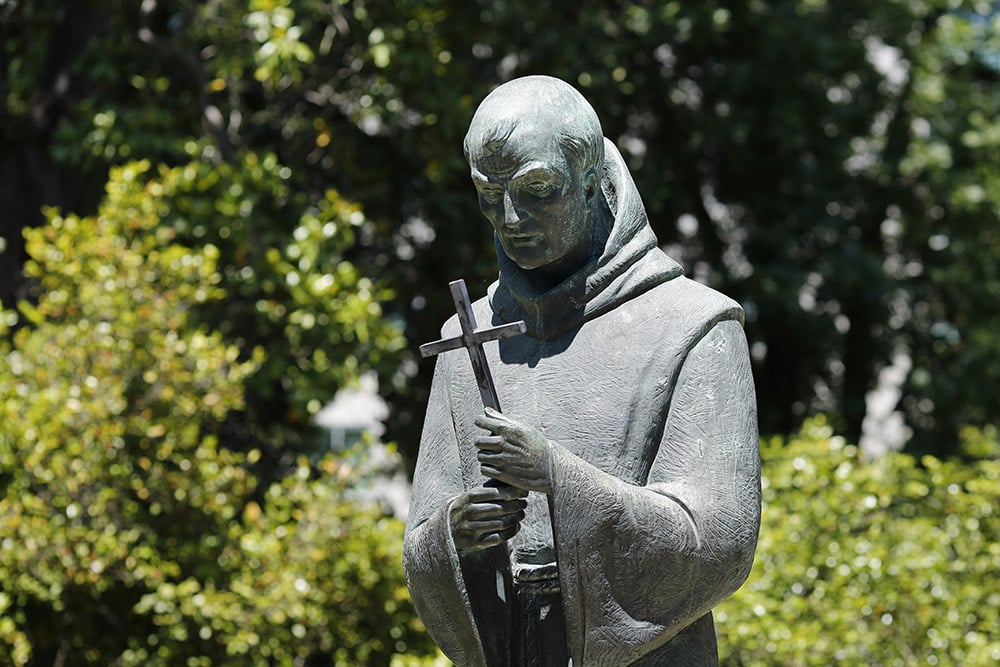 The other night, I was enjoying a rare and blessedly quiet moment after a particularly chaotic evening, which means something here. Since the first of the year, our family has been following along with Father Mike Schmitz and Ascension Press’ “The Bible in a Year” podcast. It’s excellent, and I highly recommend it. Some nights, we wait to listen until after we’ve put our two youngest (and rowdiest) girls — ages 3 and 21 months — to bed; other times, when we’re being particularly optimistic or feel we haven’t done enough yelling, we let them stay up with us. Our thought (read: my wife’s thought) is that it would be good to include them, and the calmness of the Scripture readings will help to settle them down. But it doesn’t, and so we end up continually shushing them as they bounce around.
The other night, I was enjoying a rare and blessedly quiet moment after a particularly chaotic evening, which means something here. Since the first of the year, our family has been following along with Father Mike Schmitz and Ascension Press’ “The Bible in a Year” podcast. It’s excellent, and I highly recommend it. Some nights, we wait to listen until after we’ve put our two youngest (and rowdiest) girls — ages 3 and 21 months — to bed; other times, when we’re being particularly optimistic or feel we haven’t done enough yelling, we let them stay up with us. Our thought (read: my wife’s thought) is that it would be good to include them, and the calmness of the Scripture readings will help to settle them down. But it doesn’t, and so we end up continually shushing them as they bounce around.
The night I started telling you about was particularly active, and so after the girls finally — finally! — went to sleep, I sat in the blissful silence and did what I too often do when the need to unwind strikes: I grabbed my phone and started scrolling through social media, ignoring posts about the violence at the U.S. Capitol and the transition of power between administrations. Eventually, a post from one of my favorite pages caught my eye. If you’re not familiar with Humans of New York, it posts excerpts of interviews with real people, telling stories that often pull at the heartstrings.
The post told the story of a father through his son’s interview. The man was a grocer, and he had been a grocer all his adult life. He rose from stocking the shelves to becoming a manager and, eventually, the owner of the store. “He worked six days a week,” the son said. “He saved enough money to buy out the other owners. But it was never an obsession or anything. Whenever he was home with us, he was fully present. His family was his sweet spot. He never needed to hang out with his buddies. He was madly in love with my mom. And his idea of a good time was spending time with his kids.”
The son went on, talking about his father’s generosity — to his employees and to his community. “The man has a handwritten note from Mother Teresa because of all the food he’s given away,” the son said, grabbing my attention (as Mother Teresa holds special sway in our house). The note from the saint read, in part: “God love you for the love you share with God’s poor through your gift of food. … My gratitude to you is my prayer — that one day when you go home to God, Jesus will say to you, ‘Come you blessed of my Father — because I was hungry and you gave me to eat.'”
He continued: “On the day my dad got full ownership of the store, he signed over everything to his four kids. I was in the room when it happened. His lawyers and accountants tried to talk him out of it. They told him: ‘You’re giving away everything. You’ll never be able to stop working.’ And he replied: ‘I was poor when I started this thing. And that’s how I plan on leaving.'”
Listening to Father Schmitz’s podcast (with or without adorable distractions) is one of a handful of New Year’s resolutions I’ve made for 2021. Another is praying a daily Rosary. At times, these practices can seem rote — less like I’m developing a relationship with Our Lord and more like I’m simply checking things off of a to-do list. Still, I intend to persevere for a couple of reasons. First, I know that doing these things will help me to be intentional about spending time with God. They will eventually become habits that will seep into all areas of my life. But equally important, doing these things in front of my kids — whether I want to or not — will allow them to see me putting in the work to grow closer to Christ.
My prayer is that these practices of the Faith help my family to model Christ’s love for others in a very concrete way — like the good grocer. And that, more than money or possessions, is a legacy worth leaving.
Scott Warden is managing editor of Our Sunday Visitor.







